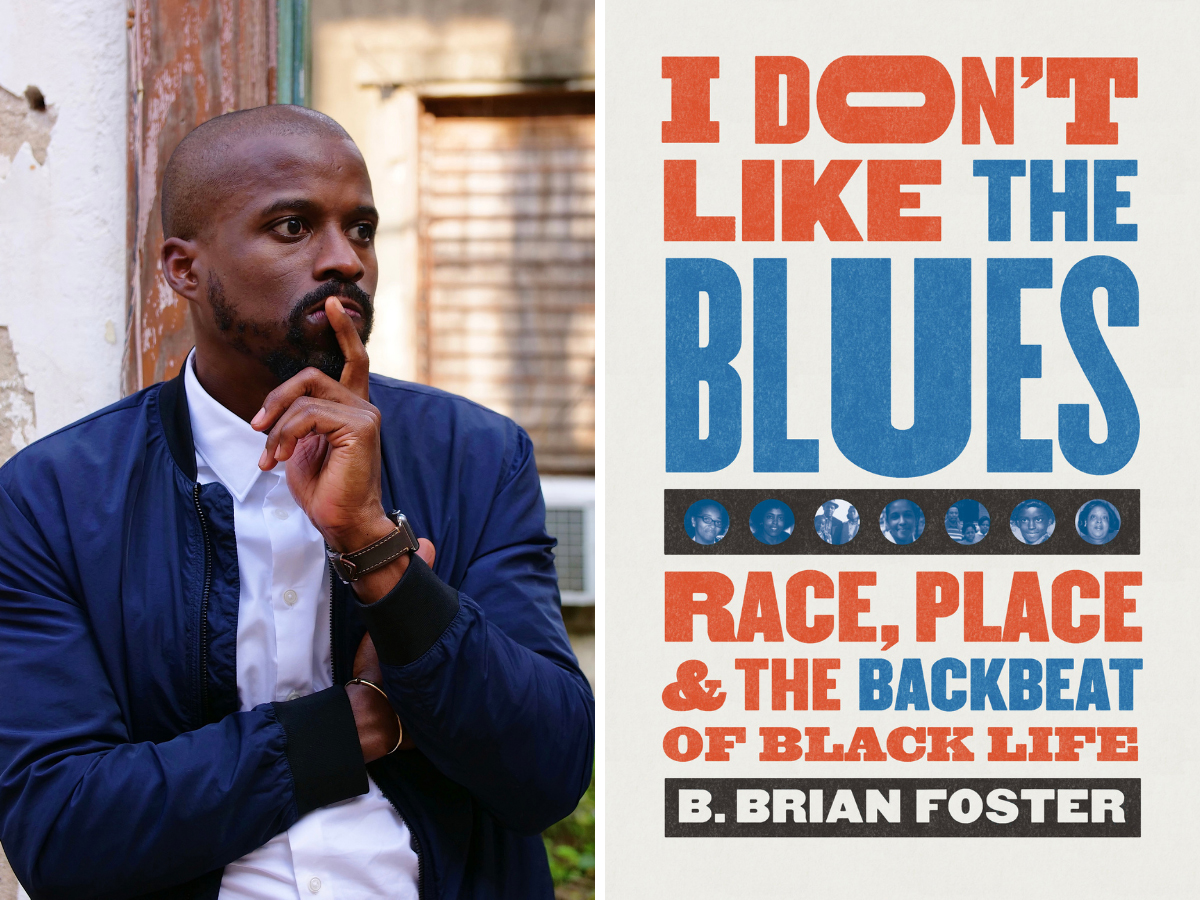
Bookmark This is a feature that highlights new books by College of Arts & Sciences faculty and alumni, published the first week of each month.
 Featured book: I Don’t Like the Blues: Race, Place and the Backbeat of Black Life (UNC Press, December 2020) by B. Brian Foster (M.A. ’03, Ph.D. ’17 sociology).
Featured book: I Don’t Like the Blues: Race, Place and the Backbeat of Black Life (UNC Press, December 2020) by B. Brian Foster (M.A. ’03, Ph.D. ’17 sociology).
Q: Can you give us a brief synopsis of your book?
A: I Don’t Like the Blues tells two stories. The first story focuses on the growth of blues tourism scenes in the Mississippi Delta town of Clarksdale — things like blues clubs, blues festivals, blues heritage markers, blues museums and blues music venues. The second story chronicles how Black residents of Clarksdale (the legacies of the women and men who first sang the blues at the turn of the 20th century) feel about the local emphasis on blues tourism. As the book’s title suggests, they don’t like it. So much of the book is dedicated to unpacking what Black residents mean when they say they “don’t like” the blues, and what those dispositions mean for understanding Black life in the contemporary U.S. South.
Q: How does this fit in with your research interests and passions?
A: Right now, my mission statement is to put stories of the rural Black South — Black people and places in the southern United States — on the record. That commitment guides pretty much everything that I do, from my research and teaching, to my public writing and creative work. I’ve written about the Black students who organized to have the Mississippi flag, which until recently bore a Confederate battle emblem, removed from the campus of the University of Mississippi (CNN). I’ve profiled Grammy award-winning hill country blues singer-songwriter Cedric Burnside (Bitter Southerner). I’ve co-produced a short film about black food traditions in rural Mississippi (Southern Foodways Alliance). And I am the current director of the Mississippi Hill Country Oral History Collective, which records and archives the life histories of Black communities in north Mississippi. I Don’t Like the Blues fits squarely in that research and storytelling agenda.
Q: What was the original idea that made you think: “There’s a book here?”
A: I remember the moment exactly. It was a conversation with a 71-year-old woman — who I call Mrs. Irene Sandiford in the book — as we sat in the office of her funeral home. The moment came when I asked her about her favorite music. She told me, “I don’t like the blues. It saddens me.” I knew from how she said that, and from what she said after that, that the project was a blues project. And I knew it wouldn’t be just any-ole blues project. I knew it would be a project that unpacked the many different ways that black southerners think and talk about the blues —the blues as lived experience and perspective, the blues as music and performance, and the blues as economic development tool. And doing that takes a book.
Q: What surprised you when researching/writing this book?
A: There are better answers to this question, but right now the thing that I’m still reflecting on is just how hard it all was —moving from North Carolina to the Mississippi Delta in 2014, living between Clarksdale and another town in Mississippi in 2014 and 2015, writing the dissertation while working my first job on the tenure track in 2016 and 2017, then writing the book in 2018 and 2019. I don’t remember what my expectations were beforehand; I just know I did not expect the journey to be what it has been. To be sure, I can’t think of how hard the work was without recognizing how grateful I am to be the person who managed to do it. I met so many beautiful people, sparked friendships and relationships that have lasted. I found my mission and my voice.
Q: Where’s your go-to writing spot, and how do you deal with writer’s block?
A: I’m a creature of habit. In grad school, I was a coffee shop writer, and I preferred to write in the mornings. There were a few spots in the Triangle area: Caribou Coffee on East Franklin in Chapel Hill, Bean Traders on 54 in Durham, Beyú Café in downtown Durham. After leaving North Carolina (the second time) to take my current job at the University of Mississippi, I became an anywhere-and-anytime writer. The published version of the book has parts that were written in the passenger seat of people’s cars — from Washington D.C. to my childhood home in north Mississippi, on front and back porches, with a side of whiskey and Coke, and at all hours of the day and night.
I don’t believe in writer’s block. I mean, are there times when it’s tough to put words to paper? Absolutely. But, writing is a much more expansive and coaxing practice than “putting words to paper.” It is reading and thinking. It is exchanging ideas. It is wondering. It is experimenting. It is reckoning and recognizing. And then, yes, it is putting words to paper. In my experience, when the words-to-paper part comes hard, that means it’s time to move toward something else for a little while. It’s time to read more. It’s time for a walk or a nap. It’s time to talk to somebody. And then, yes, sometimes it’s time to put words to paper; and that part isn’t always pretty. Sometimes words come slow. Sometimes there are long periods when they don’t come at all. That isn’t writer’s block. It’s just writing.
Foster, a Carolina alumnus, is assistant professor of sociology and Southern studies at the University of Mississippi and director of the Mississippi Hill Country Oral History Collective. His public writing and research focus on questions of race and place.
Nominate a book we should feature by emailing college-news@unc.edu. Find previous “Bookmark This” features by searching those terms on our website, and add some great books to your reading list by checking out our College magazine books page.
